
Rakesh Jhunjhunwala is the most successful investor that you are ever likely to meet in your entire life. He single-handed converted a paltry sum of Rs. 50,000 into a massive fortune of Rs. 7,000 crore. The best part is that he is always willing to share his techniques with us, his fans.
In a chat with Kalpraj Dharmashi of ValueQuest, Rakesh Jhunjhunwala has analyzed why we fail as investors and what we can do to rectify that. I have distilled his advice into a few actionable points:
(i) Invest in stocks the way you invest in property or gold:
When we buy a plot of land, a flat or a chunk of gold, we are happy to sit on it for years, content in the knowledge that the investment will grow steadily with time. We don’t have the urge to periodically check whether the market value is up or down.
However, in the case of stocks, even though we know that they are of fundamentally strong businesses and will stay so for a long period of time, we cannot resist the impulse to keep checking whether the stock is up or down and of reacting accordingly. If the stock price plunges, we get jittery and wonder whether we have made a mistake in buying the stock.
Rakesh Jhunjhunwala suggested that we should not buy a stock unless we are absolutely sure of what we are getting into. And having bought it, we should not get swayed by temporary events if the long-term story of the stock is intact.
At this stage, we must also recollect the superb point made by Raamdeo Agrawal that though the Sensex has given 100x returns, very few investors have a 100x gain in their portfolio owing to their penchant to churn their portfolio.
(ii) Our expectation from stocks is unrealistic:
The Badshah recited an amusing anecdote to emphasize his point. A pretty girl once asked him for a stock pick and its price target. The Badshah obliged by recommending a top-quality stock and assured her that the stock would double in three years (a CAGR of 26%). However, the girl reacted with disappointment. “Only double in three years?” she exclaimed much to the Badshah’s chagrin.
The Badshah explained that we suffer from an unrealistic expectation to become rich overnight and this induces us to shun sound companies and instead choose stocks of dubious pedigree in the lust to make a quick buck.
Giving his own example, Rakesh Jhunjhunwala explained that if he is able to make 18% return on his portfolio, he feels like a “king”. “If I can make 24%, I feel like an emperor” he exclaimed much to the amusement of the distinguished audience.
“Remember that even the World’s greatest investor (Warren Buffett) has compounded his wealth at only 22% CAGR” the Oracle of Mumbai added.
(iii) Understand the difference between “investment” and “speculation”:
Rakesh Jhunjhunwala hit the nail on the head when he said that we imagine ourselves to be ‘investors’ when we are at heart ‘punters’ looking for quick-fire gains.
He explained that we buy a stock without adequate research or conviction in the hope that a short-term event will send it spurting up. When that doesn’t happen, we lug the stock around and pretend it is an ‘investment’.
We must be clear in our mind of what we are and what we want to be – investors or speculators – and tailor our strategy accordingly. If we intend to be investors, we must develop the proper temperament for that, he said.
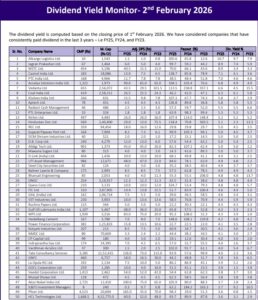
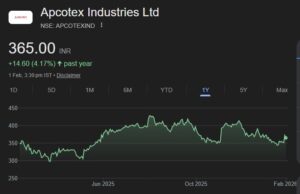
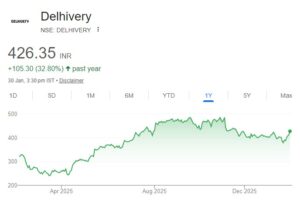
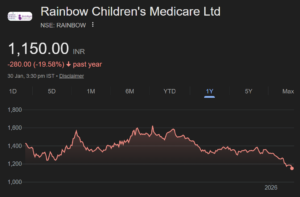
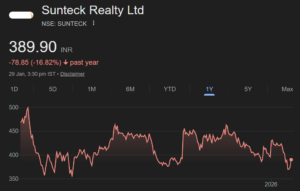
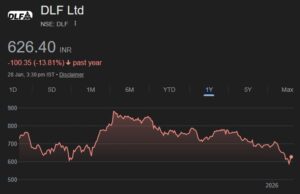
At his stature he can say he feels like king when his portfolio returns 18%. But think 18% on 6000 crore will be Rs. 1000 crore.
We shouldn’t forget that even for first 5 years in his investment career, he traded in stocks to increase his capital. He didnt start investing in 1985 instead he traded till 1990 and then he started investing.
Remember he made a big fortune in sesa goa futures in 1989 which is again trading not investing.
We retail investors who invest mere 5lakh or 10 lakh obviously will dream big.
I do agree with you as well…in order to turn 70,000 into crores you definitely need to trade and trade exceedingly well…assuming RJ did start with a paltry sum, luck too played a part as well…also times have changed..today there is far greater information to market participants, those were days when information was limited and investor participation low…blindly copying anybody is recipe for disaster…what works for X may not work for Y
There were lots of factors played in favour of RJ during 1985 to 1990. As you mentioned not much information was available but it was a plus in many cases.Because until Harshad Mehta scam, Indian capital market never heard of any management issues or scams etc between 1984 to 1992. Till 1992 everybody thought Indian market is good. Think about a person invested in ACC at 200 in 1990 which sky rocketed to 9000 in 1992.
Well said bholu bro…. howevr, trading is too dangerous for small investors…
i completely agree with you, rakesh is a combination of both, thats why he is the no1.
You are absolutely right.it is when you see the winning side of a trader/investor one should not forget to see how much he has lost to come at this stage.we must follow our own understanding & do proper homework & not to follow blindly.
You are absolutely right.it is when you see the winning side of a trader/investor one should not forget to see how much he has lost to come at this stage.we must follow our own understanding & do proper homework & not to follow blindly.
this is interesting…I can not say much about the first point because a stock doubling in 3 years should make an average investor happy but the second point fits perfectly for the retail investors… we are all punters at heart, whenever we pick a stock we want it rise in the short term and when it does not not we try to stock around as a investor hoping for returns to come in …however having said that is one of reasons to select stocks with good fundamentals….at least they will protect your capital …the art of investing in stock market is not only making money it is also about not losing money..if you manage to not lose money you will have the ability to be in game…and longevity as we all know pays handsomely in the stock market because sooner or later the market has to acknowledge the fundamentals of a stock
Rakesh jhunjhunwala made his initial investments via trading, he started with a mere 5000rs, but bet his entire capital on few stakes which multiplied..now with large capital a meagre 15-20% is enough for him ..(remember multiplying small amount is easy in stock market than to multiply a very big holding) He cannot trade with 500crores…can he?
Nice post & a great video.
I wanted to know whom he was reffering to while saying to kalpraj “end me tho dabawala hi kamata hai in trading” in the video.
The best way to ride is–let trend be my friend–only in potential companies which have a great growth story-i managed to do a bit of swing trading last year which created a lot of wealth.
I think he is referring to non-exchange traders…in stocks and commodities through unregistered brokers primarily in Gujarat Maharashtra …I have read in few papers that it is really big…though can not say how much is truth
dabbawalas are nonregistered exchnages run by some punters and mostly the marwaris and they have their relatives who r in this business they charge same money but in cash it is completely illegal trade and only futures are traded on any stock ,commodity
Dabbawalas are everywhere and outside of Gujarat are not Marwaris.
ohh.. thanx for your insight.
Finally the stocks I hold are moving…late movers but I guess my patience will pay off …so I guess my original thesis is correct.good stocks will protect your capital and give returns as well..buy right sit tight
Btw I think he is not being interviewed by Kalpraj Dharamshi